Behind the curtain: How British spy agencies are aiding Israeli genocide in Gaza
By Reza Javadi
Since the launch of Israel’s genocidal war on Gaza in early October, the United Kingdom has dramatically increased its military and intelligence support for the Israeli regime.
It has done so either by recruiting spies in the occupied Palestinian territories, engaging private military companies, deploying surveillance aircraft and vessels, or conducting spy missions over Gaza.
Notable components of the British deployment include Royal Air Force P-8 maritime patrol aircraft, unspecified surveillance assets, two Royal Fleet Auxiliary support ships, three Merlin helicopters, and a contingent of Royal Marines, which were meant to aid the Israeli aggression against Palestinians.
According to the Campaign Against Arms Trade (CAAT), a UK-based civil society organization, the United Kingdom and Germany are among the biggest arms suppliers to Tel Aviv.
The CAAT report said British companies supplied approximately 15 percent of components used in F-35s that were employed in the Israeli bombardment of the besieged Gaza Strip.
Some companies, such as Elbit, the Israeli regime’s international military contractor, hold licenses for trading military equipment in Britain, the report stated.
MI5 recruits spies in Gaza
Beyond military assistance, the UK has consistently sought to provide intelligence support to the Israeli regime by utilizing existing intelligence operatives and recruiting new agents within occupied territories.
In a recently revealed case, the British spy agency MI5 tried to recruit a British man in Gaza by offering to help his family escape the city, which is currently under heavy bombardment by the Israeli regime.
The man, who reportedly declined the offer, revealed that his family had registered with the Foreign, Commonwealth and Development Office (FCDO) for evacuation but experienced prolonged delays, enduring dire conditions in a tent among other displaced individuals in Gaza.
“I have been waiting for more than two months for them to get me and my family out of this crazy, dangerous war,” he was quoted as saying, expressing frustration.
The MI5 contact with the man in Gaza indicated that the agency's ability to facilitate the family's evacuation through FCDO was contingent upon the man agreeing to work for the intelligence agency.
Despite the urgency of their situation, the man said he did not agree to this condition.
MI5, the contact said, had influence over the FCDO but only if he could show “there is willingness from your side about working together”.
“After I received their offer, I said to myself: the UK is a country of institutions and law, and they will not obstruct the evacuation of me and my family because I did not respond to MI5's proposal. But unfortunately, I was wrong,” the unidentified man stated.
Moazzam Begg, a senior director at advocacy organization Cage International, and a former Guantanamo Bay detainee assisting the family, noted that the recruitment methods employed by MI5 seem consistent with the agency's tactics to exploit individuals facing desperate circumstances.
Begg emphasized the coercive nature of such recruitment, sharing his own experience.
“I know from personal experience from MI5 agents telling me directly that the only way you can get out of a place where you are being tortured or abused or detained without trial is by cooperating.”
UK spy mission over Gaza
The British intelligence support for the Israeli regime and its spy missions in the occupied territories is not limited to the recruitment of potential spies.
A recent investigation revealed that the British military conducted approximately 50 spy missions over the Gaza Strip for the Israeli regime since December.
In its latest report, Declassified UK, a news website focused on British foreign policy, said the flights have taken off from the UK's Akrotiri air base on the Mediterranean island of Cyprus. Flights originating from the controversial air base utilized Shadow R1 surveillance aircraft to gather intelligence.
The UK Ministry of Defense initially claimed these flights aimed to collect information on British captives held by the Hamas resistance movement, but the frequency and timing raised suspicions of broader intelligence gathering.
“The extraordinary number of flights, and the fact that they started nearly two months after the hostages were taken, raises suspicions that the UK is not collecting intelligence solely for this purpose,” Declassified UK said.
Head of the Cyprus Peace Council Charis Pashias said last week that locals have seen a “daily” increase in the number of flights from Akrotiri since Israel launched its bombardment of Gaza on Oct 7, 2023.
He said people have also “become aware of the illegal presence of thousands of American soldiers now stationed in Akrotiri.”
UK's plan for surveillance flights
In another noteworthy development, the UK government openly announced its plan for surveillance flights over Israel and Gaza, citing it as part of hostage rescue efforts.
Hamas condemned this decision, labeling it as military involvement in the "genocidal" war on Gaza. The group urged the UK to reconsider, citing historical grievances such as the 1917 Balfour Declaration, describing it as "the sin of the century" and condemning the UK for perpetuating a shameful colonial past.
The UK’s "intention to carry out intelligence flights over the Gaza Strip makes it an accomplice to the Zionist occupation in its crimes, and responsible for the massacres to which our Palestinian people are subjected," the Palestinian resistance group said in a statement.
The UK should have "corrected its historical position that was offensive to the Palestinian people," and "atone for" the 1917 Balfour Declaration, a letter from then-British Foreign Secretary Arthur Balfour to Lionel Walter Rothschild, a leading figure of the British Jewish community, pledging support for "a national home for the Jewish people" in Palestine.
British Cyprus intelligence base
The recent surge in UK surveillance activities is closely tied to its significant presence in the Eastern Mediterranean, specifically the British Sovereign Base Areas (SBA) on Cyprus.
These bases, constituting 3 percent of the island's landmass, house the largest Royal Air Force base outside the UK and contain substantial signals- and intelligence-gathering assets. Most UK surveillance flights are launched from these bases, strategically located just 200 miles from Gaza.
Although officially unacknowledged, leaked top-secret documents from GCHQ, the UK's largest spy agency, confirm that Cyprus “hosts a wide range of UK and US intelligence facilities.”
The main US spy agency of National Security Agency (NSA) particularly operates on British territory, maintaining a "far-reaching technical and analytic relationship" with the Israeli SIGINT National Unit (ISNU), sharing information on access, intercept, targeting, language, analysis, and reporting, according to the Declassified.
A top-secret document from GCHQ adds that “Cyprus collection facilities are acknowledged by NSA as important assets”.
These revelations, leaked by NSA whistleblower Edward Snowden, gained significance in light of the US-UK activities on Cyprus, suggesting that intelligence obtained from Gaza by American spy agencies operating on British Cyprus might be shared with the Israeli regime.
The US and British militaries are key partners of Israel and have supported its bombing of Gaza. The documents show intelligence gathered on Cyprus is likely to be part of this support.
The leaked GCHQ document acknowledges that intelligence gathered from Cyprus is integrated "with military planning and operations," emphasizing the close interaction between GCHQ and the Ministry of Defence (MoD) on Cyprus.
Moreover, RAF Troodos, a British "retained site" near the northern Cyprus border, operates as a listening post for the US, providing unique access to critical points in the Middle East. The intelligence collected from Troodos supports technical analysts in both the US and the UK and is used for weapons-related collection, according to a GCHQ document.
The Troodos site, GCHQ noted, “has long been regarded as a ‘Jewel in the Crown’ by NSA as it offers unique access to the Levant, North Africa, and Turkey”.
Furthermore, it is believed that the CIA is operating from Britain's bases on Cyprus. A leaked US cable, reported by Declassified, mentioned a UK official stating that American aircraft flying from RAF Akrotiri are operated by the State Department and US military, with the “possibility of other agencies”, presumably the CIA, conducting operations from the base.
UK police faced off with pro-Palestine protesters rallying in London pic.twitter.com/sjmnEZvHIc
— Press TV (@PressTV) February 17, 2024
British soldiers take part in Israeli war
In a recent revelation, the death of Nathanel Young, a 20-year-old British man serving as a corporal in the Israeli Occupation Forces (IOF), shed light on the fact that hundreds of Britons are serving in the IOF, which is illegally occupying Palestinian land and has killed thousands of children in Gaza.
In an interview with the Times, Sam Sank, a British paratrooper in the Israeli army, who has been participating in the Israeli war against Palestinians since early October, revealed that hundreds of fellow Brits are currently serving in the IOF.
Former Home Secretary Suella Braverman, whose husband has lived in the Israeli-occupied territories, previously told the Jewish Chronicle that they have “close family members who serve in the IDF”.
It is unclear if those relatives are British citizens.
This prompted the International Centre of Justice for Palestinians to seek urgent clarification from the UK Foreign Office on the legality of British nationals enlisting in the Israeli army.
They made the request “In light of the catastrophic situation currently unfolding in Gaza, with clear evidence that war crimes and crimes against humanity may already have been committed in Israel and the Occupied Palestinian Territory, and the real risk that further mass atrocity crimes may be imminent”.
People who fight for a foreign army are often viewed as mercenaries and would meet the dictionary definition. However, the UK lacks effective anti-mercenary laws and tends to prosecute foreign fighters on an ad hoc basis, depending on whatever geo-political interests are being pursued by the government of the day.
The UK even tried to thwart attempts by the United Nations to craft a ban on mercenaries. The only international law concerning mercenaries that Britain has signed is Article 47 of Additional Protocol I to the Geneva Convention.
It was adopted in 1977 as “countries attempted to create a fine distinction between those classified as mercenaries and other actors, essentially to retain the right to recruit, train, finance, and use mercenaries with impunity,” according to a report presented last month to the UN General Assembly by its working group on mercenaries.
Britons joining the IOF may only meet certain aspects of the Geneva Convention's criteria for mercenaries, especially concerning material compensation exceeding that of their Israeli counterparts.
The country’s historical resistance to international efforts to ban mercenaries complicates the legal landscape around this issue.
UK arms exports to Israel
According to research by the Campaign Against the Arms Trade (CAAT), the UK has licensed approximately £472 million in arms exports to Israel since 2015. These exports include various components, equipment, and technology for fighter aircraft and drones.
It's worth noting that, as James Butler observes, “the headline figure is taken from the value of standard licenses, but the UK also operates a system of open licenses that permit transfers of unlimited – and unspecified – quantities of particular military goods.”
Scrutiny of the Israeli regime's genocide in Gaza has increased in the UK due to concerns that weapons supplied by the UK might be used in violation of international humanitarian law (IHL).
Despite these concerns and calls from human rights campaigners to suspend arms sales to Israel, the UK government has shown no intention of halting such exports. The UK government's rhetorical emphasis on IHL compliance contrasts with its uninterrupted supply of arms to the apartheid regime.
In the first weeks of the war, a report by openDemocracy said “The UK government has no plans to suspend arms sales to Israel, despite human rights campaigners warning its exports have been used to kill civilians.”
In late November, when pressed in the House of Commons, the incumbent Defence Secretary Grant Shapps rebuffed the idea of the UK suspending its arms sales to the regime in Tel Aviv.
This stance persisted even after the regime's attacks on October 7, with London and other Western nations expressing “unequivocal support” for Israel, which made them directly complicit.
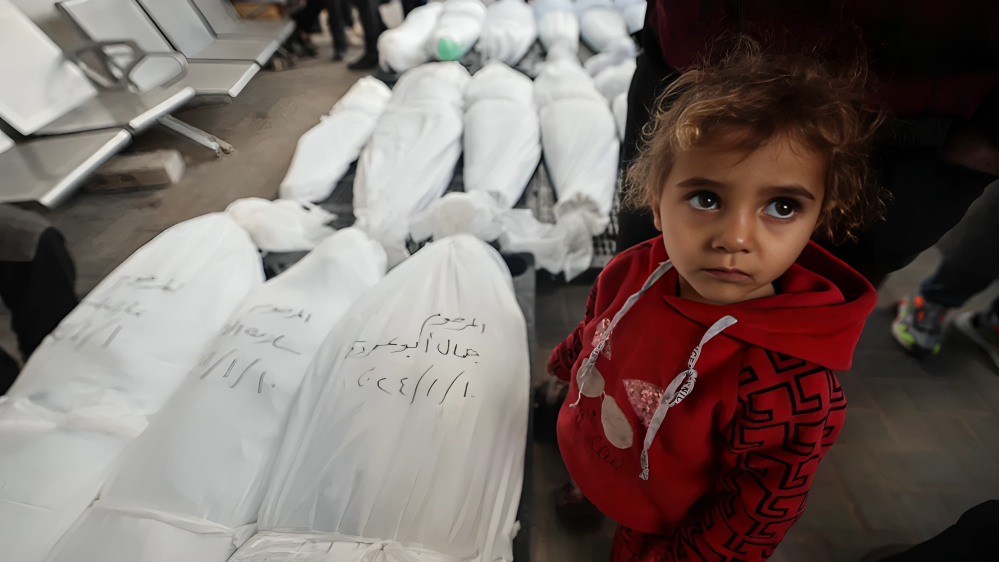
‘Systematic genocide’: Gaza media office says Israel deliberately killing women, children
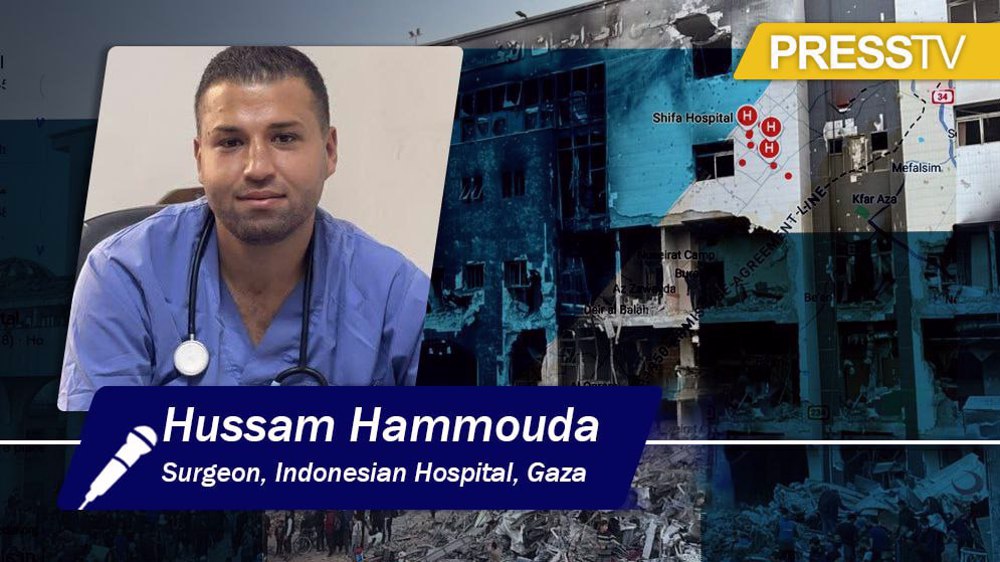
We do not carry weapons, but bandages and hope to save lives: Gaza doctor
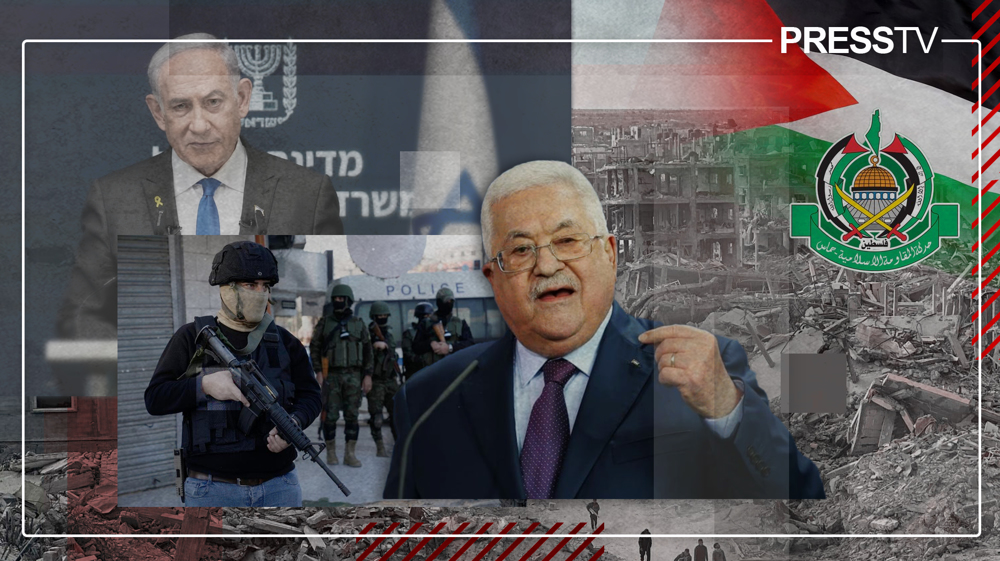
The path to Palestinian liberation from occupation begins with Mahmoud Abbas’ ouster
VIDEO | Press TV's news headlines
Euro-Med: At least 94% of those killed in Gaza are civilians
VIDEO | Expo 2025 in Tehran showcases Iran trade, investment opportunities
VIDEO | Fresh US airstrikes target more Yemeni civilians
UN: US strikes in Yemen pose growing risk to civilians
VIDEO | Iran economic diplomacy
Iran mulls buying oil from Azerbaijan amid warming ties: Report
Israeli settlers storm al-Aqsa Mosque amid intensified West Bank raids


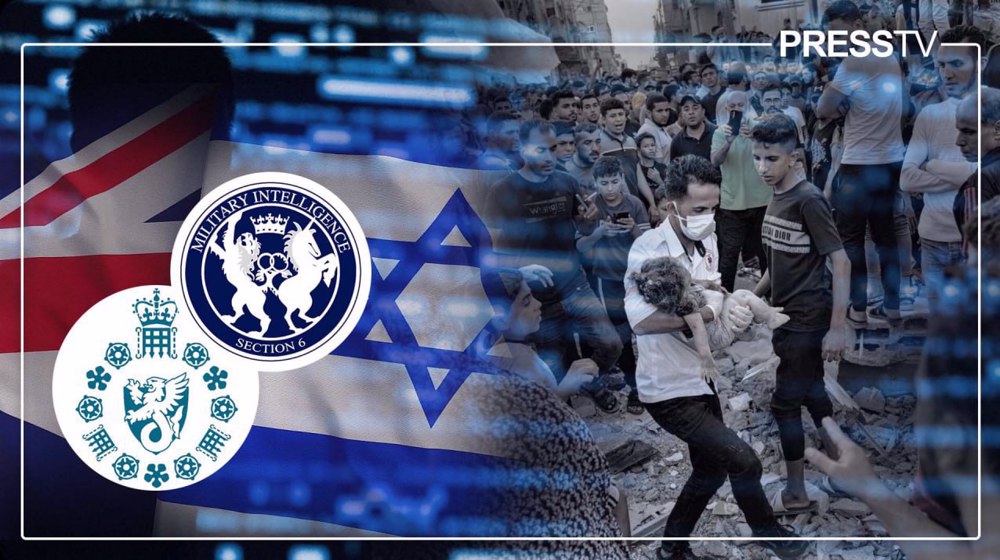
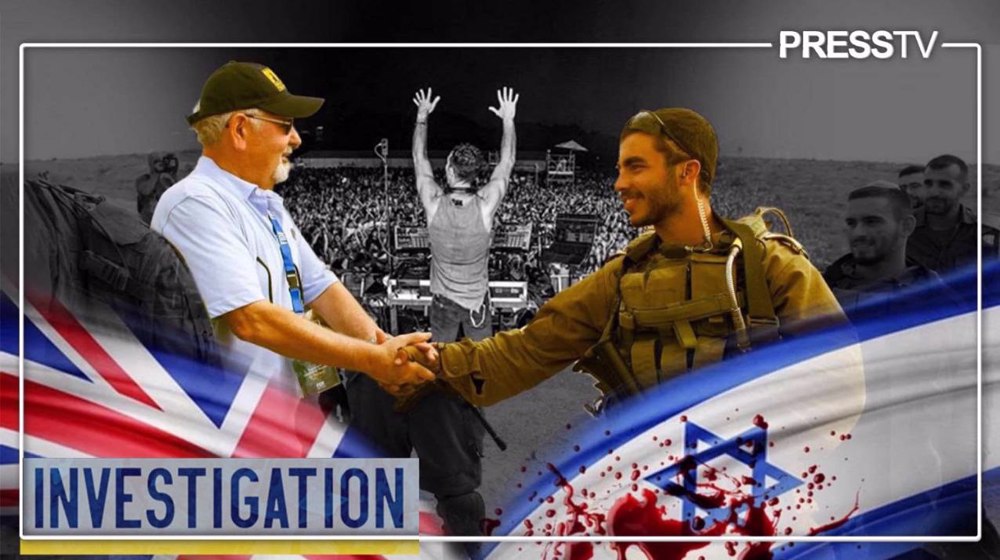
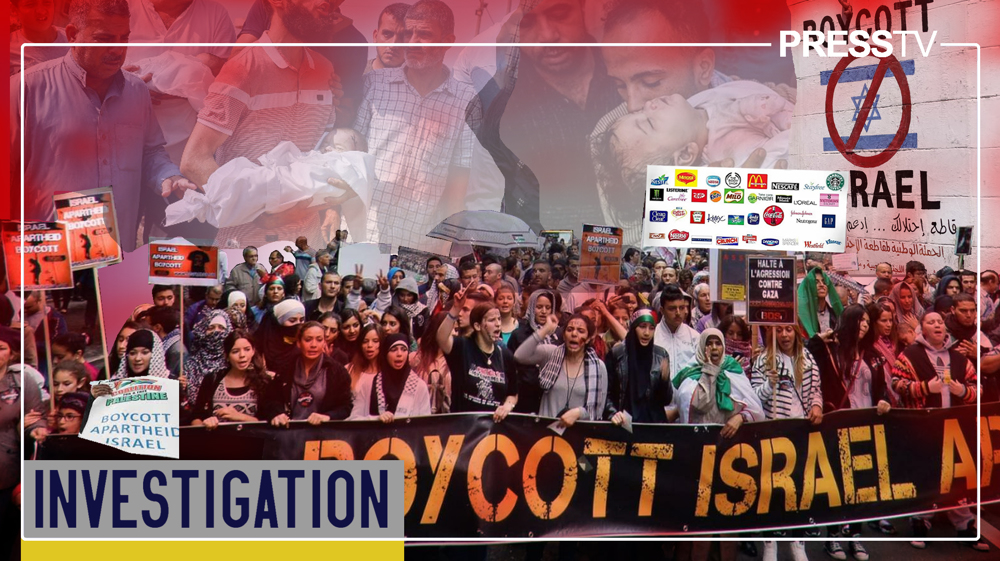



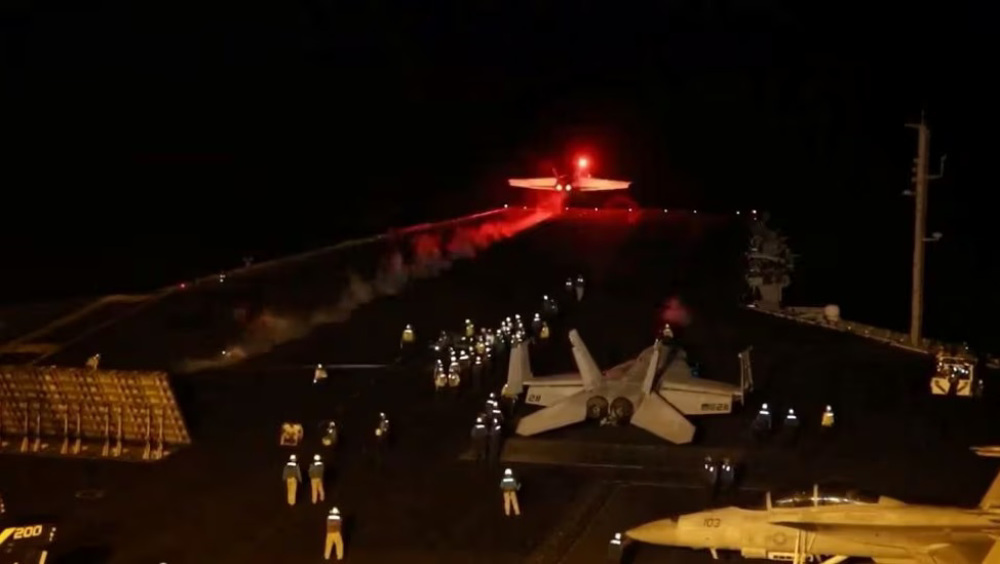
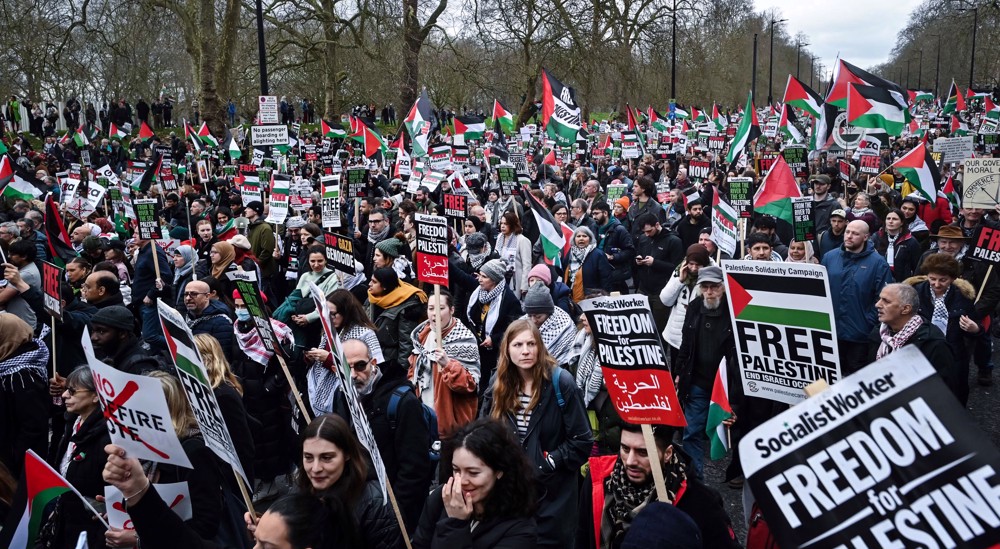
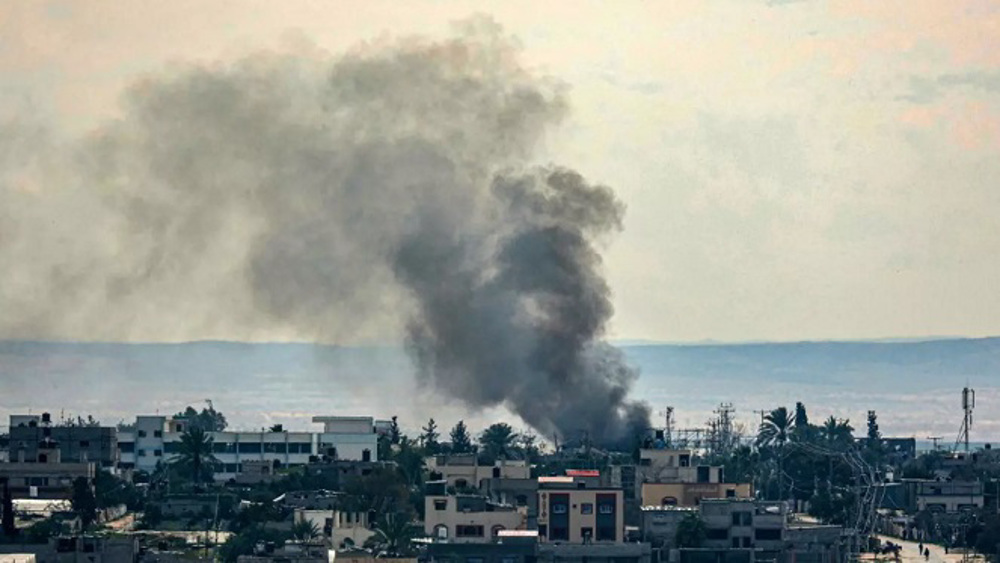
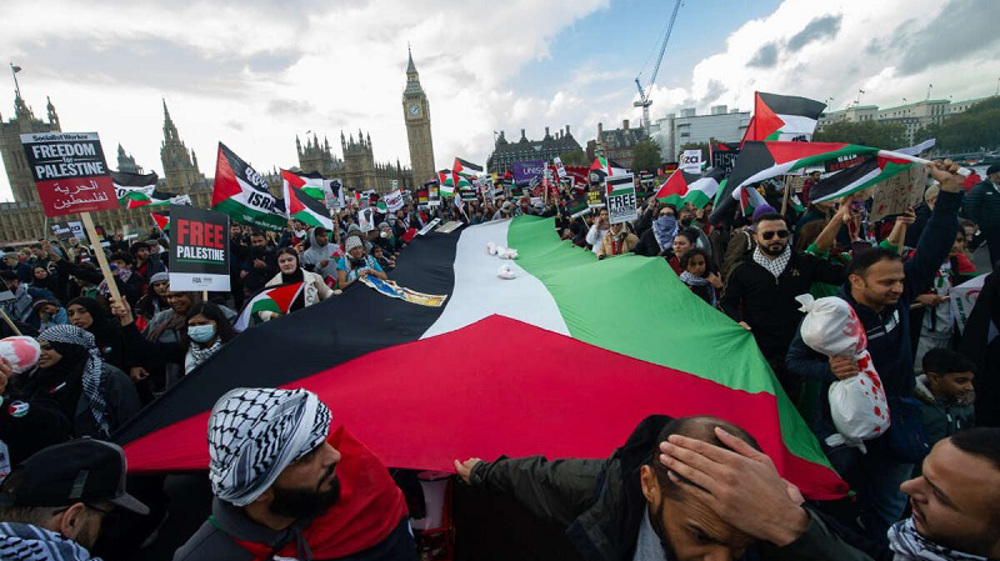
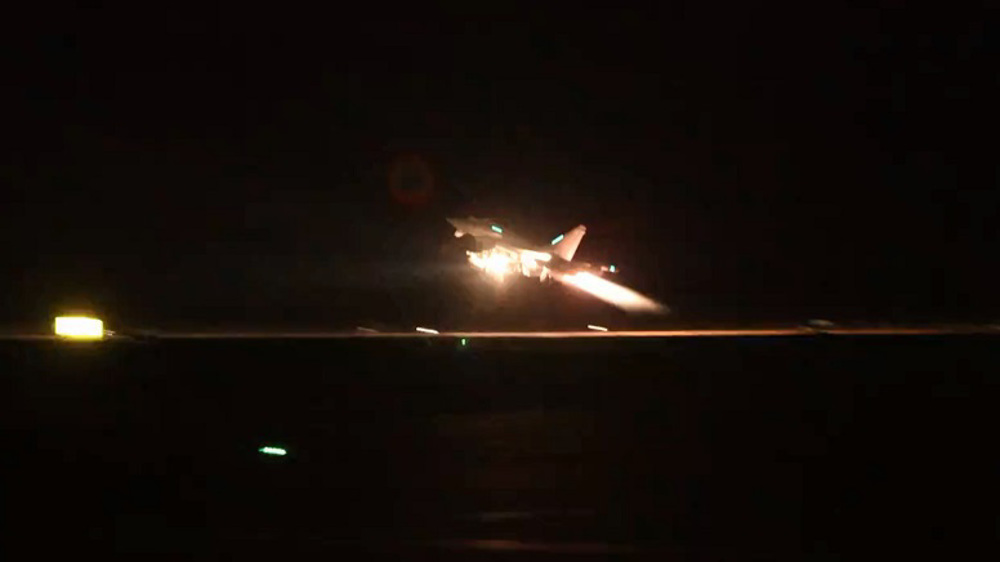

 This makes it easy to access the Press TV website
This makes it easy to access the Press TV website